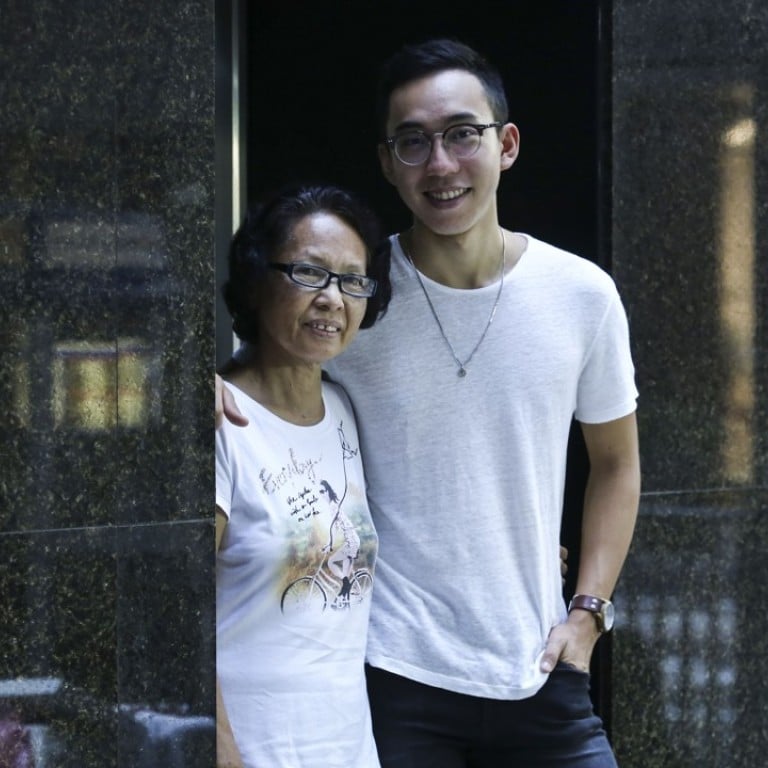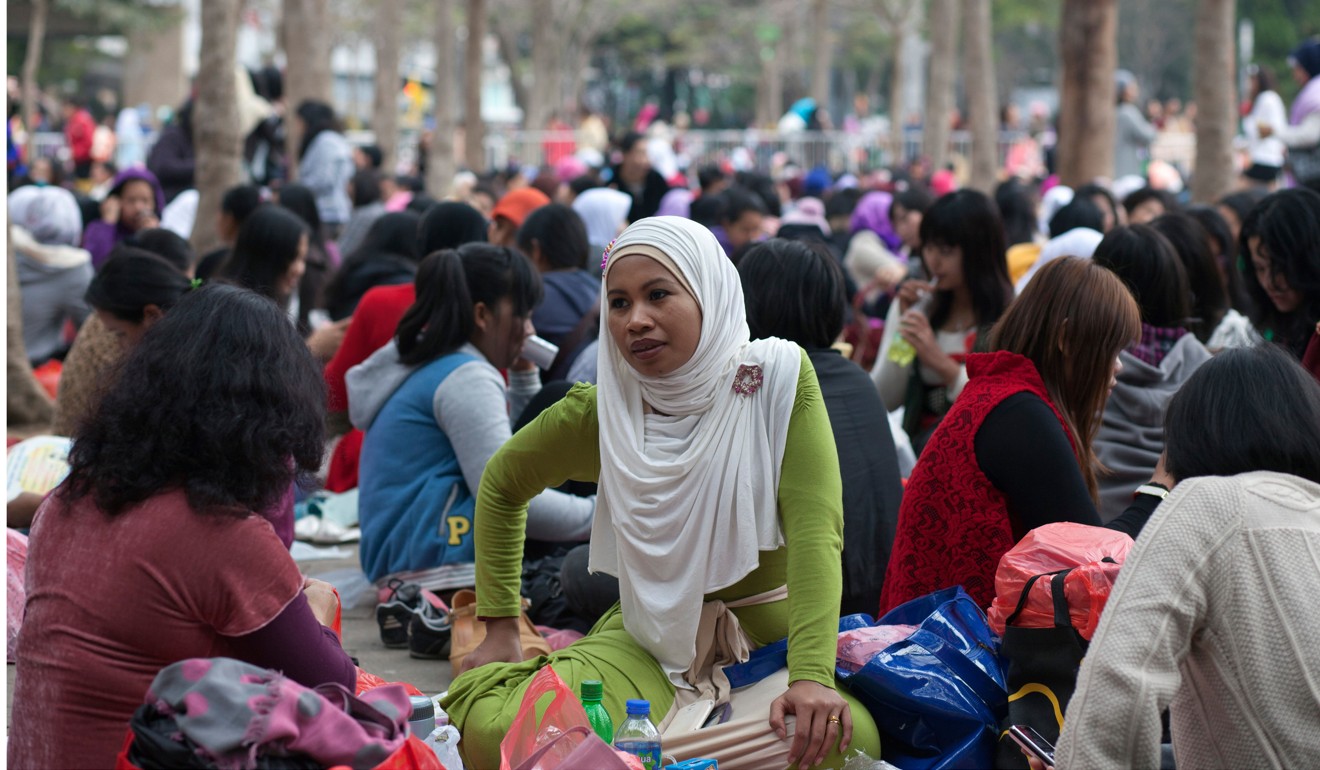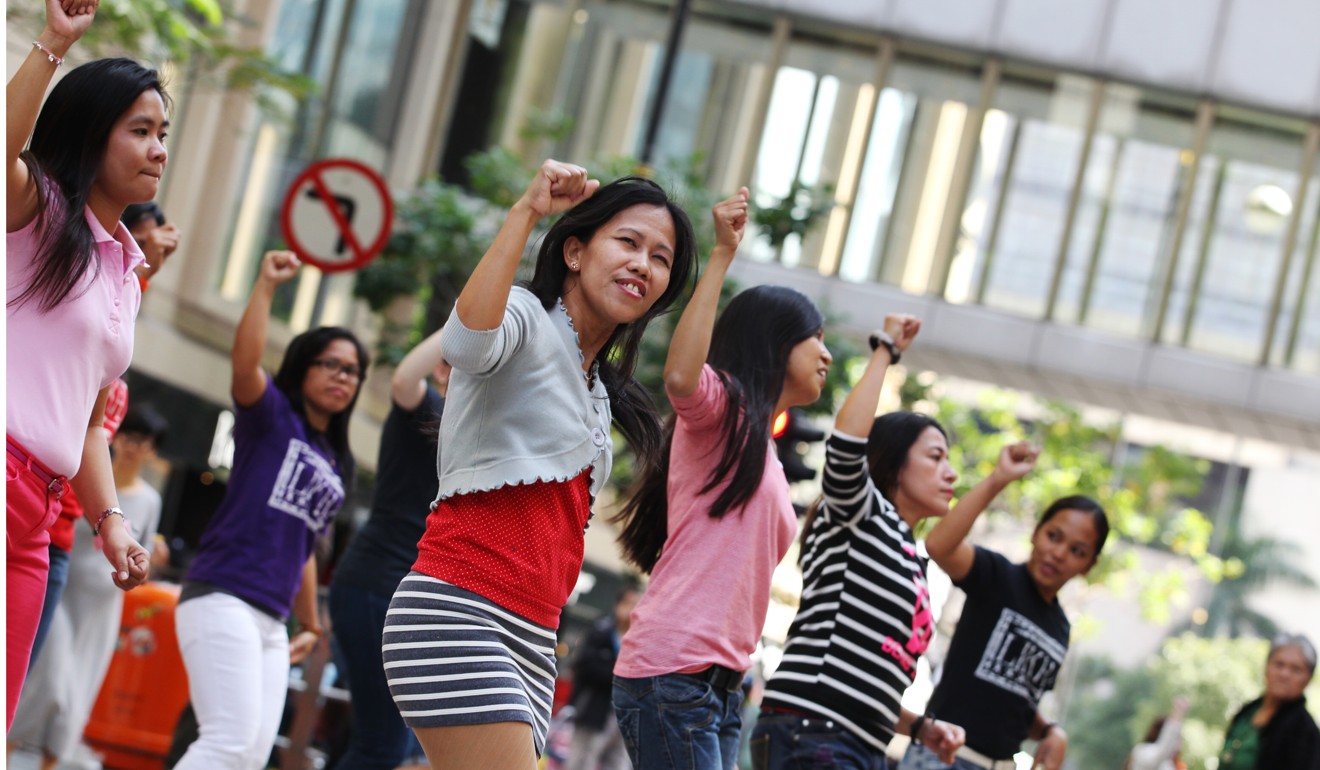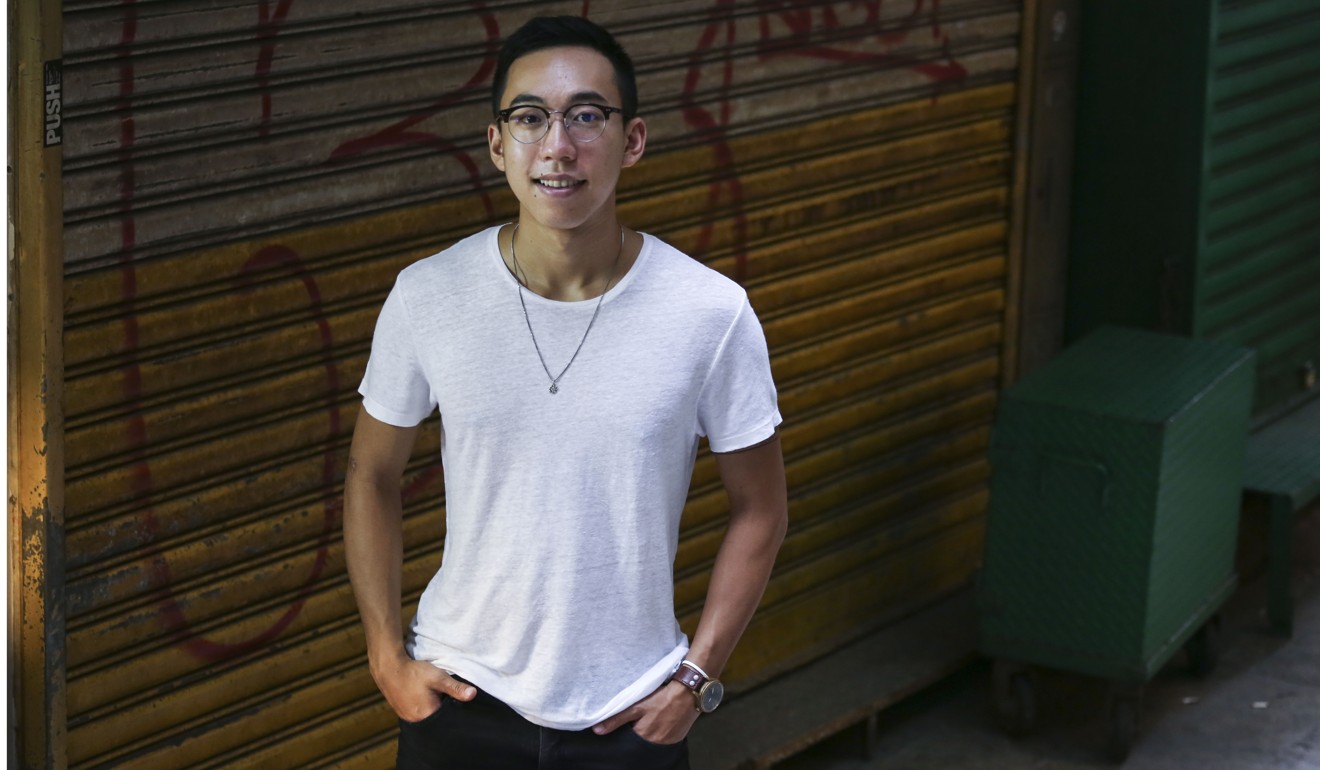
‘I don’t know what her role is in my life’: filmmaker reflects on unique dynamic domestic helpers bring to Hong Kong families
Documentary by Justin Cheung, son of director Alfred Cheung, explores the special relationship many Hongkongers have with the women who helped raise them
Justin Baggio Cheung, son of Hong Kong film director Alfred Cheung Kin-ting, has just finished editing a documentary that explores his relationship with the Filipino domestic worker who helped raise him.
The film is his way of sparking conversation in the city about the role of helpers in local families, and improving society’s perception of the thousands of women who leave relatives behind to look after others.
Cheung, 23, said he had long taken an interest in the working conditions of domestic workers in Hong Kong.
“I really wanted to tackle this subject, but it was too big … so over time it became about my relationship with her,” he said, referring to his helper, Teresita Lauang.
“She’s been with us my whole life. I always felt there was something not right about her place in society, but I couldn’t really put it into words until I left Hong Kong and had some outside perspective.”

“She was a motherly figure to me as a kid. I wanted to sleep in the same room as her. My earliest memories of childhood are with her … But I always kissed my mum before going to sleep and I could not do the same with her,” Cheung said.
Film review: The Helper – Hong Kong foreign domestic workers’ lives and dreams revealed in heartfelt documentary
“I also wanted to make this film because I don’t know what her role is in my life. It’s still not clear.”
There are about 350,000 domestic helpers in Hong Kong, a city where families rely heavily on them, mostly to take care of children and the elderly.
But the emotional burden helpers have to deal with by leaving their own families behind, and the relationship they develop with the children they look after, is not as much a topic of discussion in the city.

Lauang, now aged 64, arrived in Cheung’s home when he was only one month and two weeks old, having left her two children back in the Philippines.
“It was painful, but I wanted to give my children a brighter future, so I sacrificed for them,” Lauang said. “But while I am taking care of Justin, I really treat him as my own son ... They know how much I love them,” she said, referring to Cheung and his two younger siblings.
For the documentary, Lauang and Cheung travelled together to the Philippines, back to her village in Luzon.
End to live-in rule will not solve domestic helpers’ problems, government argues
“It was a great learning experience … Meeting her grandkids was painful because I felt she couldn’t spend time with them because she was helping my family,” Cheung said.
He hopes the documentary will lead to better treatment of helpers in Hong Kong.
“Growing up I saw so many kids treating their helpers in a rude way. Sometimes they love them too ... but it’s kind of a system,” Cheung said. “The most realistic impact this documentary could have is to change the perception of domestic helpers, and hopefully from there do something to change the way they live.

“I hope locals can see their human side and how we can relate to them … I hope it sparks a conversation in families.”
Lauang said she was “very lucky and blessed to be working with such a loving family”. But she said not all helpers had such positive experiences in Hong Kong.
Watch: How do Hong Kong’s domestic helpers sleep?
“I hope the documentary can help employers change the treatment of their helpers … I felt very happy he would make a documentary about my life, even though I am only a helper … I am very proud of him.”
HK$100 pay rise for domestic helpers? Gosh, we’re generous!
Cheung is planning a special screening in Hong Kong in December, and expects the film to be seen in local schools and international film festivals.
“I want to show it at schools to make people aware that it is easy to dehumanise someone when you don’t know their back story,” he said.
“I also hope this film can create a legacy for her. I want my kids to know that it wasn’t just my dad, my mum … but there was also this other person, although she never appears in the family photos.”

